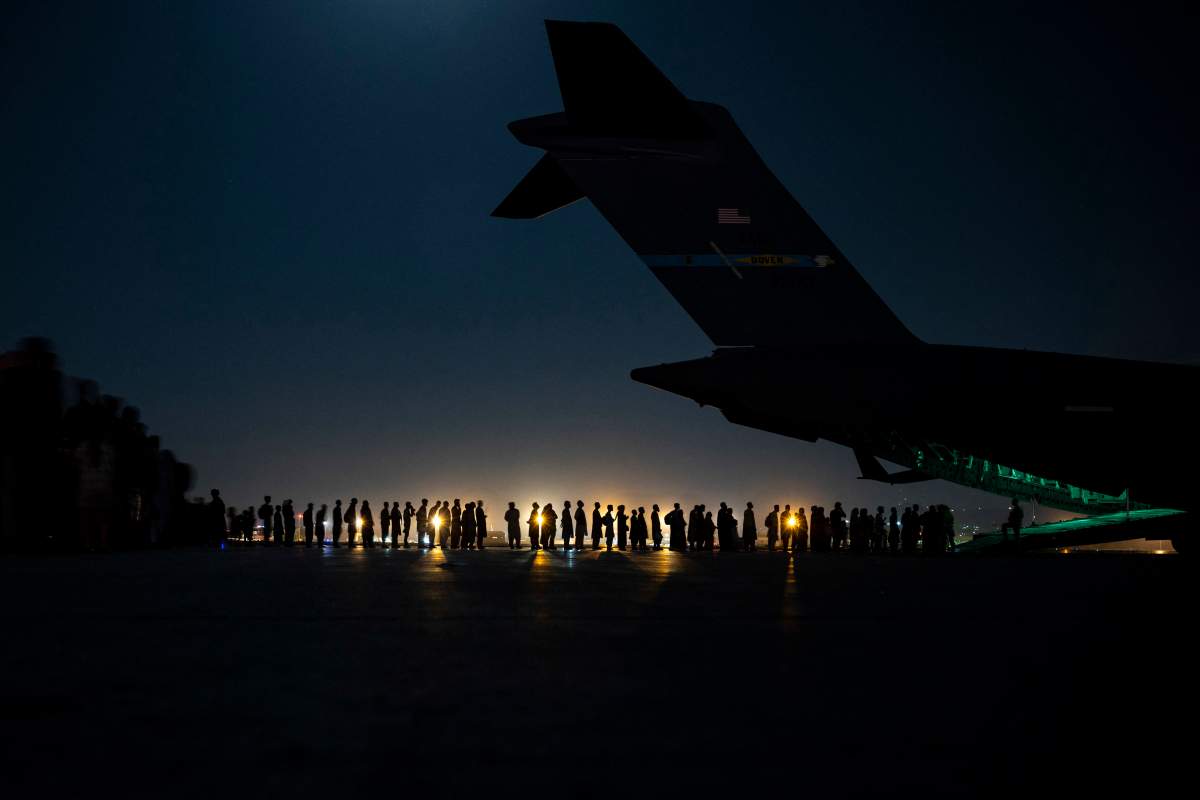Twenty-three Afghan refugees will begin arriving in London later this week as part of Canada’s evacuation efforts following the rapid withdrawal of U.S. forces and rise of the Taliban in Afghanistan.

Canada had pledged to bring more than 20,000 people from Afghanistan into the country, but on Thursday officials confirmed that the evacuation efforts have ended and it’s estimated only 3,700 people were evacuated.
The 23 refugees destined for London were already in Canada completing the two-week quarantine required due to the COVID-19 pandemic and are still expected to arrive in London later this week.
The London Cross Cultural Learner Centre (CCLC) said Thursday morning that it was not yet clear whether the end of evacuation efforts “will have a direct impact” on the newcomers to London, for example, whether anyone’s family members expected to evacuate are now left behind.
“It’s a heartbreaking situation. We’re talking about people that had to leave their home quickly, leave their loved ones, lose everything familiar to them coming to a new country,” CCLC executive director Valerian Marochko said Wednesday.
“I think Canadians have proven over the years to be compassionate and the London community is a welcoming community.”
CCLC says it is assisting efforts locally as part of a larger national and provincial network of Resettlement Assistance Program service providers. Marochko told Global News that the refugees include a mix of families with children as well as individuals.

Refugees will meet with CCLC staff – many of whom were refugees to Canada themselves – to begin addressing basic needs, health-care needs and more advanced integration in the community.
“We have been reaching out to the leaders in the local Afghan community to coordinate our efforts and with other organizations who are providing services to newcomers in London,” Marochko added.

Get breaking National news
Those other organizations span a variety of sectors, from education to employment to health and housing.
“We have a great partnership with the London Inter-Community Health Centre, the newcomer clinic. They would do health assessment and mental health, as necessary.”
Marochko says CCLC has relationships with landlords, but he said “if there’s an ask that I would have at this point in time it would be for landlords who would like to help Afghan refugees to reach the Cross Cultural Learner Centre.”
CCLC works with the Thames Valley District School Board and the London District Catholic School Board, with staff in school to follow up with the needs of school-aged children.
Staff conduct language assessments and refer those needing help with English to language service providers in the region. For employment, CCLC and WIL Employment Connections have partnered on the Job Search Workshops Program and CCLC also collaborates with the Employment Sector Council.
“It is very important to work together and depending on their job readiness, some of them might need (skills) upgrading. And there are great courses and great programs at Fanshawe College, at Western University, other colleges in our area, and they could get to upgrade their skills to be commensurate with the demand for specific skills in the job market.”
The public can also donate to CCLC, Marochko said, to help fund personal effects, clothing and other items for refugees.
Marochko told Global News that the centre will have a better idea of what specific needs are next week after staff are able to complete needs assessments.
–With files from Global News’ Rachel Gilmore and Aaron D’Andrea and the Associated Press’ Eric Tucker


















Comments